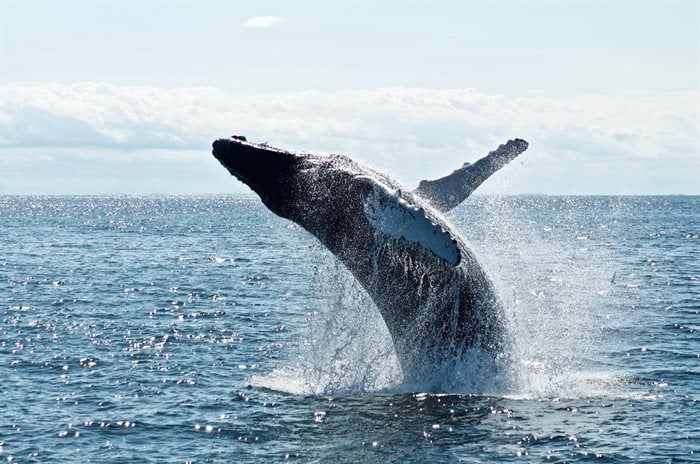On Sunday, 21 November, close to 200 people in Cape Town rose at the crack of dawn to "unwelcome" Shell's Amazon Warrior as it made its way into Cape Town harbour. The vessel has travelled down the west coast of Africa, on its way to the Wild Coast, to conduct seismic surveys for an estimated five months between Morgan's Bay and Port St Johns, starting on 1 December.
Protest action has since swelled, with a petition by the Oceans Not Oil Coalition drawing over 270,000 signatures so far and counting. Environmental activists are also now calling for a public boycott of Shell petrol stations this December in order to "hit them where it hurts most".
Appointed by Shell, SLR Consulting said, “Shell is planning to undertake this seismic survey off the East Coast under an approved Environmental Management Programme (EMPr) which has undergone public consultation as part of the 2013 EMPr process undertaken in terms of the Minerals and Petroleum Resources Development Act and as part of the 2020 EMPr compliance audit process undertaken in terms of the Environmental Impact Assessment Regulations 2014.”'Legal loophole'
According to The Green Connection’s strategic lead Liziwe McDaid, “Shell has used a legal loophole, no environmental impact assessment was required in 2013. Now in 2021, this authorisation is being used to justify their actions. No meaningful public participation is needed, yet the seismic survey will have an impact on marine life and subsequently could impact the lives and livelihoods of the fisher communities who depend on the ocean’s resources.”
An environmental justice organisation, The Green Connection says it is particularly concerned about the timing of the seismic survey phase, which is understood to still fall within the migration season for hump-backed whales and could also endanger juvenile turtles coming down the coast in the Agulhas current into the survey area over the five-month period.The Department of Forestry, Fisheries and the Environment has since noted concerns about the seismic surveys but has shifted responsibility to the Department of Mineral Resources and Energy, saying it is "not mandated to consider the application or to make a decision on the authorisation of the seismic survey".
"The impact of the seismic survey to be undertaken by Shell and Impact Africa has been authorised under the Mineral and Petroleum Resources Development Act 2002 (Act No. 28 of 2002), (MRPDA) which under section 39(2) of the Act requires the submission of an environmental management plan which is to assess and evaluate the environmental impacts of the activity. The minister of Minerals Resources and Energy is the minister responsible for the administration of the MPRDA."
Best way forward is renewable energy
In a recently published article, Dr Judy Mann of the South African Association for Marine Biological Research (SAAMBR) said, "We have serious concerns about the risks of drilling for oil offshore of the Wild Coast, given that this region is influenced by one of the fastest-flowing and most powerful oceanic currents in the world – the Agulhas Current.
"The power of the current is such that attempts to contain any accidental spillage or normal operational spillage would likely be unsuccessful. We saw clear evidence of this when the plastic nurdles spilled in the Durban Harbour spread along the entire coast of KZN and the Eastern Cape within days of the disaster."
"It is our opinion that the best way forward for environmental sustainability and local job creation is to expand technology which makes use of renewable energy," said Dr Mann.





























![Today, Halo and Demographica announce a new specialist agency, Second Rodeo]], headed up by Mike Stopforth (left). Dean Oelschig, managing partner and founder of Halo (right) says they will work as a group but ultimately, each agency will be an individual specialist](https://biz-file.com/c/2505/772543-64x64.jpg?2)



